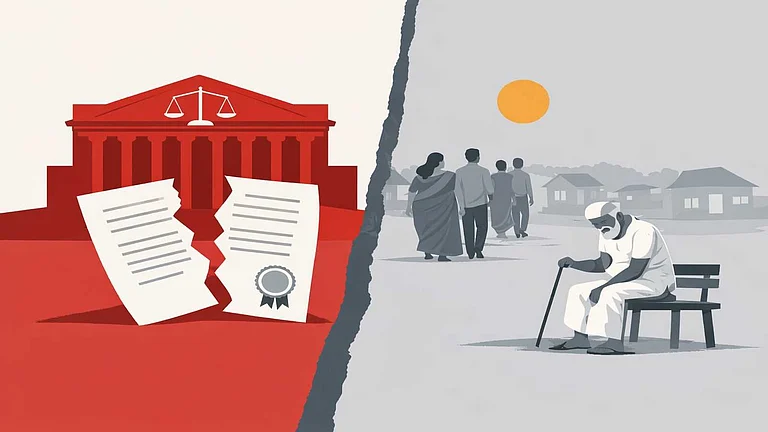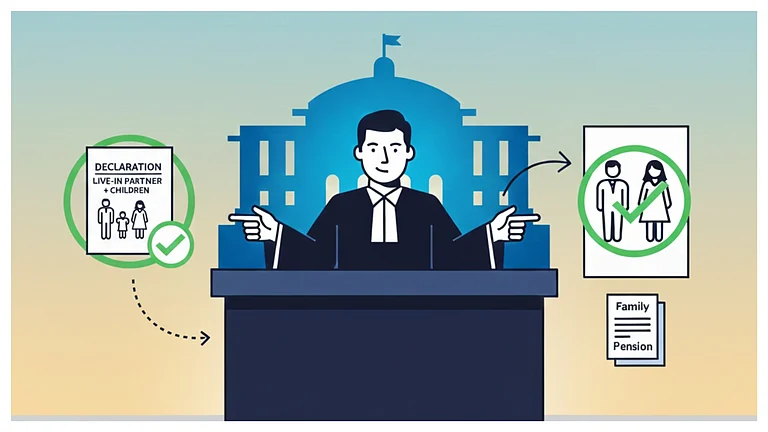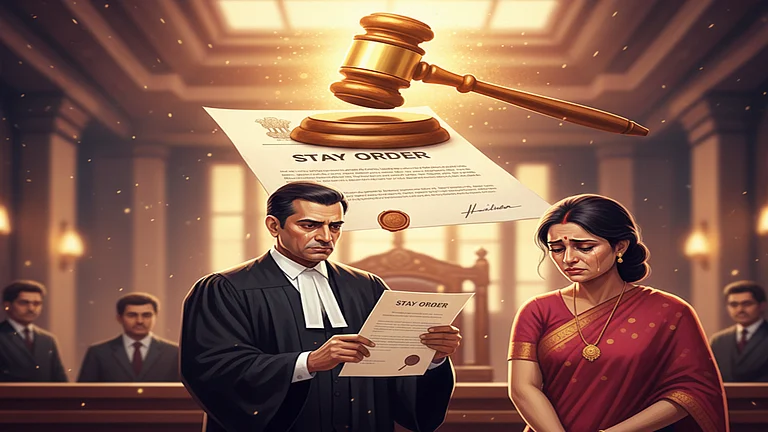
Summary of this article
· Karnataka High Court recommends revising the Rs 10,000 cap under Section 9 of Senior Citizens Act
· Justice M Nagaprasanna emphasises rising inflation affecting elderly care
· Court reinforced the importance of ensuring dignified living standards for senior citizens
The Karnataka High Court, while hearing a maintenance case under the Maintenance and Welfare of Parents and Senior Citizens Act, 2007, recommended a review of the upper limit of the maintenance amount. A single Bench of Justice M Nagaprasanna said that the related provision (Section 9) of the Act restricts the Maintenance Tribunals from granting more than Rs 10,000 as monthly maintenance to senior citizens or elderly parents who are unable to maintain themselves. The Court recommended a revision by the Centre, saying that the provision was made in 2007, and it does not suffice now. It said, “The cost of living inflation has increased exponentially. With the inflation index today, what a senior citizen would have got in 2007 is reduced by 10 per cent today, even in medical facilities.”
What Is Section 9 Of The Act
Section 9 deals with the Order for maintenance. It reads:
1) “If children or relatives, as the case may be, neglect or refuse to maintain a senior citizen being unable to maintain himself, the Tribunal may, on being satisfied of such neglect or refusal, order such children or relatives to make a monthly allowance at such monthly rate for the maintenance of such senior citizen, as the Tribunal may deem fit and to pay the same to such senior citizen as the Tribunal may, from time to time, direct.
2) “The maximum maintenance allowance which may be ordered by such Tribunal shall be such as may be prescribed by the state government, which shall not exceed Rs 10,000 (rupees ten thousand) per month.”
The Case Brief
The case pertained to a family where four children and one daughter-in-law filed a writ petition in the Karnataka High Court against the Maintenance Tribunal’s order, dated April 16, 2021, that had granted a compensation of Rs 5 lakh to the elderly parents to be paid by the four children.
In this petition, the Assistant Commissioner (Tribunal), the father, and the mother (stepmother) were the respondents. Notably, the mother of the children died in 1996, and the father remarried. The father owned the scheduled property, and the children were said to have inherited it. While the property was under joint possession, the first petitioner sent a legal notice to his father asking for allotment of his share in it.
Whereas, the father and stepmother said that the children have been constantly harassing them, and then only, they have called the elder helpline and registered a complaint against their children. Allegedly, the children have abused the elderly parents, and “unauthorisedly occupied the premises” which belonged to the elderly parents. At last, the elderly parents were forced to leave the property and live in a rented accommodation.
The police registered the complaint, summoned the children, recorded a non-cognisable report, and then closed the complaint. While the petitioner filed a petition in the trial court seeking partition of the property, the court ordered status quo to be maintained.
The elderly then approached the Assistant Commissioner as per the Act’s provisions, who, after hearing the parties, ordered the children to pay Rs 5 lakh as compensation. After this order, the children approached the Karnataka High Court by filing a writ petition in 2021.
Arguments
The children’s side argued that the Assistant Commissioner had erred in passing the order of compensation of more than Rs 10,000, while the Act permits only a maximum maintenance of Rs 10,000. Thus, it was a violation of the rules, they said. They further argued that the order was illegal because the said property was a joint family property, and the father was receiving the Rs 80,000 per month from the rented shops.
The parents’ counsel argued that the order was passed after following the due process of law. Also, the said property was not a joint property, and the children had not taken care of their parents, and thus the order should be sustained.
Court’s Observations
The court observed that the Act does not provide for a one-time compensation, but a maintenance of the recessing nature. It noted that the Act was passed in 2007, and since then, has been amended several times, but despite proposals to remove the maintenance limit, the capping remained.
It reiterated the objects and reasons for bringing the law. “Traditional norms and values of the Indian society laid stress on providing care for the elderly. However, due to withering of the joint family system, a large number of elderly are not being looked after by their family. Consequently, many older persons, particularly widowed women are now forced to spend their twilight years all alone and are exposed to emotional neglect and to lack of physical and financial support. This clearly reveals that ageing has become a major social challenge and there is a need to give more attention to the care and protection for the older persons,” the Court said
Bringing attention to the rising costs, the Court said: “In the year 2007-08, the cost inflation index stood at 129; today, it soars at 363. Thus, what one could procure for Rs 100 in 2007, requires nearly Rs 1,000 in 2025. Prices of food, shelter and medicine have climbed steeply; only the statutory cap of Rs 10,000 has remained petrified, untouched, notwithstanding the march of time. “
It added, “Can maintenance so meagre achieve the objectives of the Act?” It said that the confines of Section 9 needs to be reviewed or it would reduce senior citizens’ existence “as a mere animal existence”.
“This Court, cannot legislate, it cannot rewrite Section 9, yet it bears the responsibility to sensitise the Government of India, that a provision which stood meaningful in 2007, now mocks its own benevolence in 2025. Relief that is illusory is no relief at all. It is, but a rope of sand, incapable of sustaining those for whom it is meant,” said the Court.
The court recommended that the government revisit the provision “so that the Act may not be reduced to a hollow promise, but remain a living guarantee of dignity in old age, as the nation’s wealth is not measured by its material progress, but by the welfare of the child and the care of the elderly-old, albeit, inter alia.”
Court’s Order
The Court allowed the writ petition, quashed the impugned order of the Assistant Commissioner, and remitted it back to him for a fresh hearing, and ordered the children (petitioners) to pay Rs 10,000 monthly pension to both parents from April 16, 2021, till the date of the order by the Assistant Commissioner.
It further ordered a monthly maintenance of Rs 30,000 to both parents from the date of this Court’s judgment till the matter is decided by the Assistant Commissioner. It directed setting off the Rs 5 lakh amount, if already paid to the parents, and directed the Registrar to send the Order’s copy to the Additional Solicitor General of India to send it to the Ministry of Finance for considering the recommendations.


















